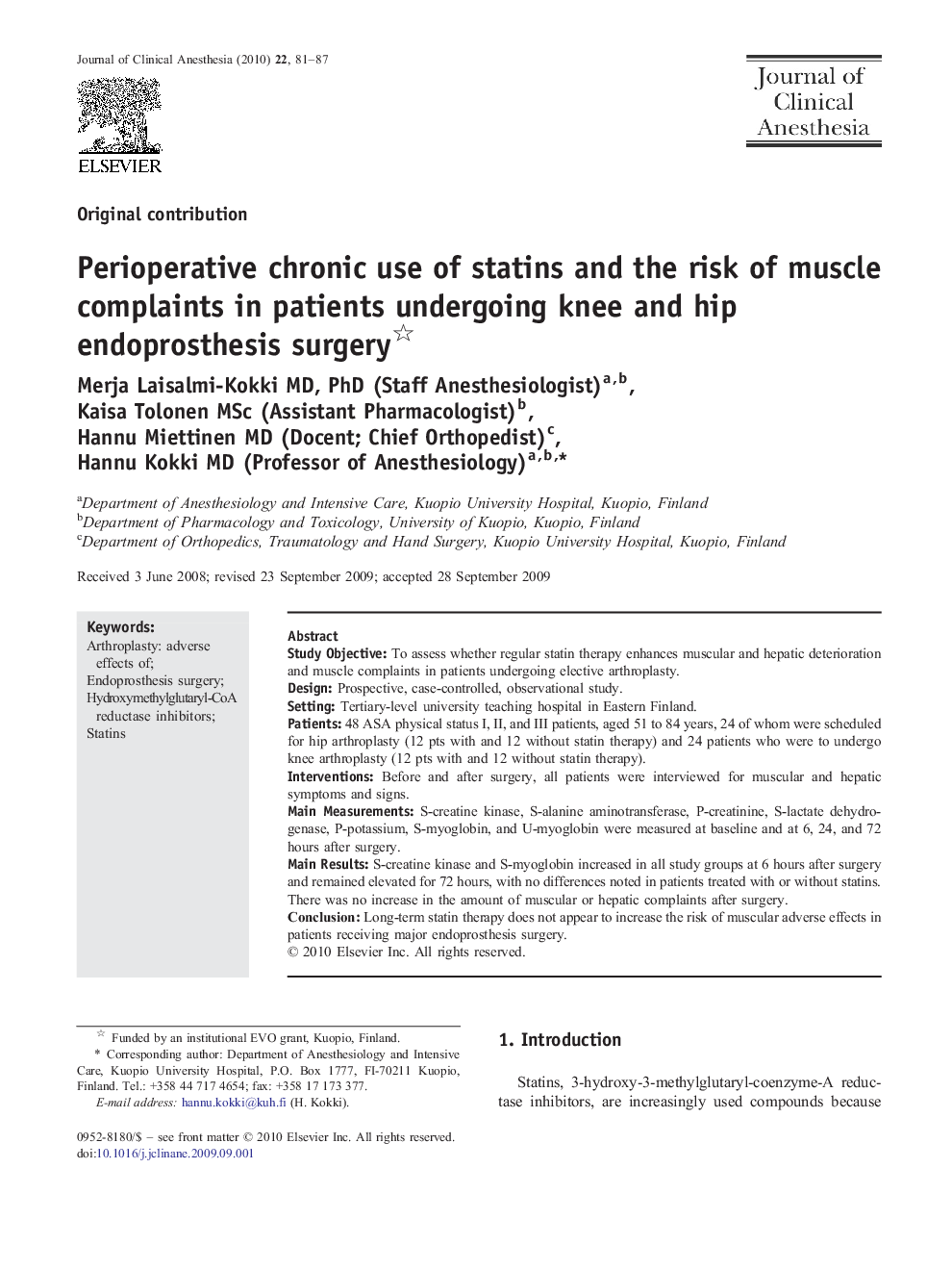| Article ID | Journal | Published Year | Pages | File Type |
|---|---|---|---|---|
| 2763708 | Journal of Clinical Anesthesia | 2010 | 7 Pages |
Study ObjectiveTo assess whether regular statin therapy enhances muscular and hepatic deterioration and muscle complaints in patients undergoing elective arthroplasty.DesignProspective, case-controlled, observational study.SettingTertiary-level university teaching hospital in Eastern Finland.Patients48 ASA physical status I, II, and III patients, aged 51 to 84 years, 24 of whom were scheduled for hip arthroplasty (12 pts with and 12 without statin therapy) and 24 patients who were to undergo knee arthroplasty (12 pts with and 12 without statin therapy).InterventionsBefore and after surgery, all patients were interviewed for muscular and hepatic symptoms and signs.Main MeasurementsS-creatine kinase, S-alanine aminotransferase, P-creatinine, S-lactate dehydrogenase, P-potassium, S-myoglobin, and U-myoglobin were measured at baseline and at 6, 24, and 72 hours after surgery.Main ResultsS-creatine kinase and S-myoglobin increased in all study groups at 6 hours after surgery and remained elevated for 72 hours, with no differences noted in patients treated with or without statins. There was no increase in the amount of muscular or hepatic complaints after surgery.ConclusionLong-term statin therapy does not appear to increase the risk of muscular adverse effects in patients receiving major endoprosthesis surgery.
